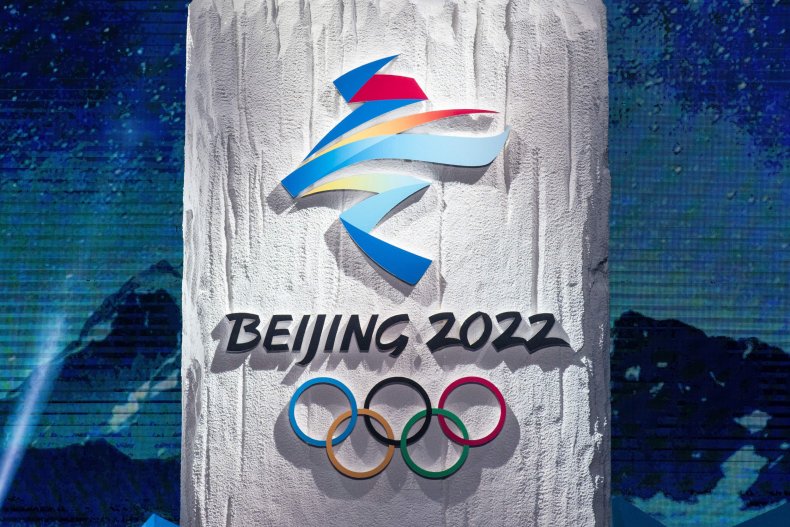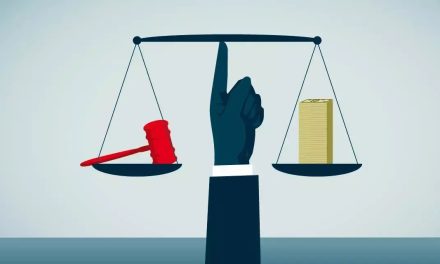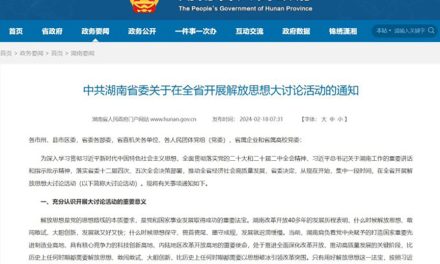By JIANLI YANG
At a bipartisan congressional hearing hosted by the Tom Lantos Human Rights Commission on May 18, House Speaker Nancy Pelosi made rightful calls for a diplomatic boycott of the 2022 Beijing Winter Olympics on the grounds of China’s abysmal human rights record.
After the hearing, Chinese foreign ministry spokesperson Zhao Lijian said that Pelosi was “full of lies,” adding that “U.S. politicians should stop using the Olympics to play despicable political tricks.” Sadly, it appears that the International Olympic Committee (IOC)—one of whose vice presidents is Chinese Communist Party member Yu Zaiqing—is now in bed with China, deeming human rights an off-limits “political” issue in order to save face for China and itself.
In my testimony at the hearing, I pointed out that the Chinese government committed gross human rights abuses in the lead up to and during the 2008 Summer Olympics. In selecting Beijing to host the 2022 Olympics, the IOC has chosen to either trust China’s assurances concerning human rights (even though Beijing’s record in preparing for the 2008 Olympics was deplorable), or not to care at all. Or both.
Just before the IOC’s final decision in 2015 to choose Beijing for the 2022 Olympics, IOC communications director Mark Adams stated in a letter to me and three other human rights activists that the Chinese government had given the IOC new assurances concerning “human rights, the right to demonstrate, media freedom to report on the Games with no restrictions on the Internet, labour rights, displacement and environmental protection.” According to Adams, the IOC was “confident” that the Chinese Communist Party—the only party that is allowed to rule in totalitarian China—would take all necessary measures to ensure that the Olympic Charter and IOC contract “would be respected” if China were selected to host the 2022 Games. In other words, it’s 2008 all over again. In reality, it is far worse.
China’s human rights atrocities include the crushing of political and civil freedoms in Hong Kong, the Uyghur genocide, the deepening assault on Tibetan culture, the forced erasure of Mongolian and other ethnic minority identities, the rampant torture of prisoners of conscience, mass digital surveillance of its population, hostage diplomacy, the persecution of dissidents, journalists and human rights lawyers, ever-increasing restrictions on freedom of expression and freedom of religion … the list goes on.
As debates across the world over whether to participate in or boycott the 2022 Olympics become increasingly heated, and with time running out, the question remains: Will the IOC make China’s “assurances” public?
The IOC contract demands “media freedom” only for an eight-week period before the Games, concerning the sporting events themselves. Therefore, China is free to deny visas to journalists seeking to report on the development of the Olympic venues, to censor reports about human rights abuses and labor rights violations and to use its array of national security laws to threaten or arrest journalists publishing inconvenient reports.

Beyond media freedom, the rest of Beijing’s commitments are unknown and have been shielded from public scrutiny in confidential documents cited by the contract.
If the IOC is sincere about producing a better outcome in 2022 than it did in 2008, it must make public its evaluation of Beijing’s performance on human rights, labor rights and environmental protection the last time around. The IOC’s report after 2008 said merely that, “To those who have criticized the IOC on human rights issues, one can argue that the Games have elevated international dialogue on such issues among governments, world leaders, politicians, NGOs, and pressure groups.” That’s a lie. The Chinese government has enjoyed continued impunity in its spree of crimes against humanity. Enough is enough.
Apart from China’s human rights atrocities, another transparency-related issue concerns the health and safety of Olympic athletes, staff and attendees. This issue has become increasingly salient since late-2019, when the first outbreak of COVID-19 occurred in Wuhan.
China responded to the COVID-19 epidemic by covering up its outbreak, cracking down on whistleblowers, falsifying casualty data and misleading the public. Furthermore, the Chinese government erected all kinds of barriers to prevent the world from investigating the origins of the coronavirus, placing all of humanity at risk for a future crisis. How can the IOC guarantee China’s transparency if another wave of the COVID-19 pandemic—or an outbreak of another, hitherto-unknown virus—occurs in China during the 2022 Games? This concerns the safety of the Olympic athletes and the world.
The IOC already failed the world twice, by allowing totalitarian China to host the Olympics in 2008 and again in 2022, despite the fact that China’s human rights abuses have only escalated in the intervening years. The IOC now faces another test—one of transparency. Perhaps the IOC has been bought off by China and is corrupt beyond repair. In that case, the IOC will continue to evade, prevaricate and hide behind “confidentiality” clauses. However, there’s still a chance, albeit slim, that the IOC will do the right thing by providing answers to the legitimate concerns raised by Olympics stakeholders worldwide. Only time will tell.
Jianli Yang is founder and president of Citizen Power Initiatives for China.
The views expressed in this article are the writer’s own.
This article first appeared in Newsweek on 5/27/21























